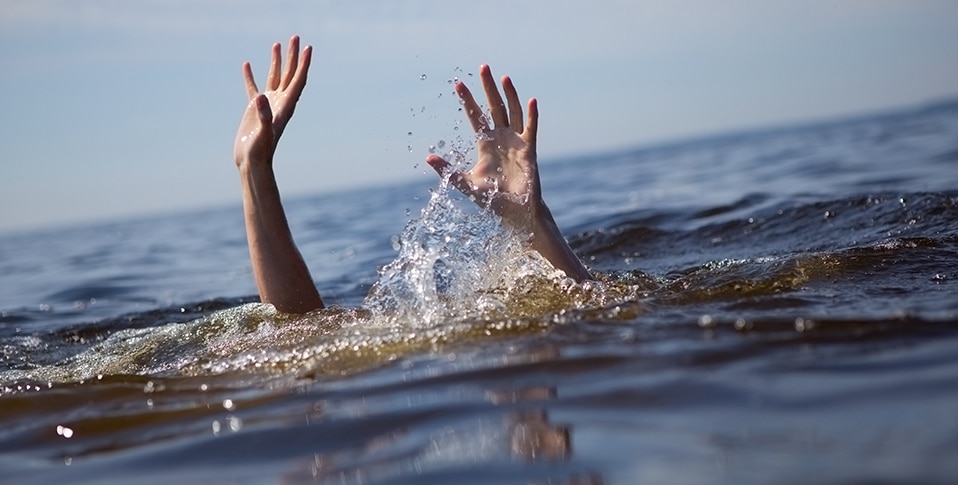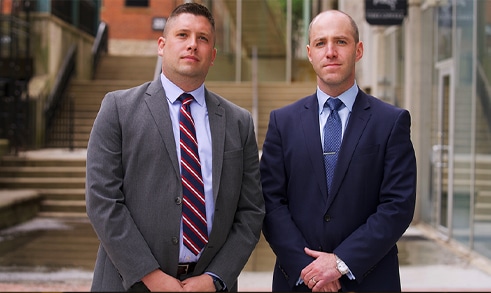
Columbus Drowning Accident Lawyers
Wrongful death claims for families when water accidents cause fatalities in Ohio
During the warm weather months, swimming pools are a great attraction for people of all ages. Many Columbus homeowners have their own pools in their backyards. There are also many community and private pools people can enjoy. Central Ohio also has many lakes and rivers for swimming. Sadly, many people do drown each year – and not just people who don’t know how to swim. A fall or a slip into heavy currents can cause a tragic death. A capsized boat or a rainstorm can prevent people from getting to shore.
At Soroka & Associates, LLC, our Columbus trial lawyers file personal injury and wrongful death claims when negligence causes harm. We work to show why drowning accidents happen and why property owners and others should be held liable. A lawsuit can never compensate you for the emotional and spiritual loss of a child, spouse, or parent. Wrongful death claims can help families financially move forward. Our drowning accident lawyers advocate for families so that they can receive the maximum amount of compensation Ohio law permits.
How can we help?
- Why do drowning accidents happen?
- What types of drowning accident claims does your Columbus firm handle?
- Who is responsible for a Columbus drowning accident?
- What safety measures can reduce the risk of drowning?
- How much time do I have to file a Columbus wrongful death claim?
- Do you have a drowning accident lawyer near me?

Why do drowning accidents happen?
The CDC reports about 3,960 fatal unintentional drownings every year in the United States, with 8,080 non-fatal. Further, “more children ages 1–4 die from drowning than any other cause of death except birth defects. For children ages 1–14, drowning is the second leading cause of unintentional injury death after motor vehicle crashes.” The survivors often live with severe injuries such as brain damage, memory problems, fractures, and some loss of function.
The Community Healthcare Outreach Program (CHOP) states that the risk factors for drowning include:
- Not knowing how to swim
- A lack of lifeguards and supervisors
- The failure to fence in or barricade swimming pools, especially from children
- Alcohol use
- Failing to wear protective gear such as life jackets
Swimming pools create hazards other than the risk of drowning. The splash and overflow from pools make the areas around the pool extremely slippery. Slip and fall accidents are common as people enter and exit the pools and children run around the pool areas. Slip and falls can cause head trauma, spinal cord injuries, fractures, and other serious injuries.
Other hazards around swimming pools include skin and lung exposure to the chemicals that keep pools sanitary, and pool drains that can entrap a swimmer’s hair or clothing.
What types of drowning accident claims does your Columbus firm handle?
If a close family member dies due to a drowning accident in Columbus, Soroka & Associates files a wrongful death claim on behalf of the parents, spouse, and/or children of the victim. Other relatives may also be entitled to benefits in some cases.
Damages in wrongful death claims in Ohio include:
- The funeral and burial costs.
- The value of the loss of financial support based on the decedent’s earning capacity.
- The value of the loss of services (such as household chores) your loved one would have provided.
- The “loss of the society of the decedent, including loss of companionship, consortium, care, assistance, attention, protection, advice, guidance, counsel, instruction, training, and education, suffered by the surviving spouse, dependent children, parents, or next of kin of the decedent.”
- The loss of a prospective inheritance.
- The mental anguish of the surviving family members.
The wrongful death claim in drowning accidents is normally based on premises liability. Premises liability means that the owners of the pool have a duty to reasonably protect others from danger. This duty applies to anyone the owner invites to use the pool. The duty to protect pool users may also apply to children, even if the children trespass onto the property. The duty to protect child trespassers is called “the attractive nuisance” doctrine. The doctrine is based on the thinking that children may be attracted to swim, even if there are hidden dangers.
Premises liability law requires that property owners:
- Have lifeguards on staff if the pool is open to the public.
- Cover the pool so it can’t be used when the owners are not home.
- Comply with any federal, Ohio, or Columbus pool safety laws. There are specific rules for when and where fences for outdoor private pools should be constructed, what lighting is required, and pool owners must comply with the federal Virginia Graeme Baker Federal Pool and Spa Safety Act which regulates drain covers.
- Install fences, post signs, and take other steps to prevent unauthorized users from swimming in the owner’s pool.
- Take steps to minimize the risk of slip and falls around the pool.
Who is responsible for a Columbus drowning accident?
At Soroka & Associates, our Columbus drowning accident lawyers file claims against all responsible parties. The defendants may include:
- A private pool owner
- A municipal pool owner
- A hotel or motel
- A condominium, coop, or apartment complex
- Repair and maintenance companies
- Lifeguards who fail to do their job
- Organizations that run events where swimming pools are used – and who fail to supervise the people who might use the pool
We also file product liability claims against manufacturers and suppliers if a defective swimming pool causes a drowning accident. For example, pools with broken ladders or defective drains may be eligible for a product liability claim.
What safety measures can reduce the risk of drowning?
The U.S. Center for Disease Control and Prevention recommends the following safety measures:
- Everyone should learn how to swim. Children who have learned how to swim still need supervision.
- Fences should enclose pools and separate the pool from the house.
- Any toys that might attract children to the pool area should be removed.
- An adult should be selected to monitor children in or near water – including bathtubs. The supervising adults should watch the children – meaning they should not be distracted by phone use, reading, drinking, or other activities. Drowning only takes a few seconds.
- Access to the pool should be shut/locked when swim time is finished.
- A life jacket helps reduce the risk of drowning for anyone in a boat. Children should use life jackets when around natural water.
- Adults should learn CPR.
- Parents and adults should know the dangers of natural waters, including “dangerous currents or waves, rocks or vegetation, and limited visibility.”
- Swimmers should check the forecast before exploring any lakes, rivers, or other bodies of water.
- Don’t drink alcohol.
- “Always swim with a buddy. Choose swimming sites that have lifeguards when possible. The buddy system is especially beneficial for people with seizure disorders or other medical conditions that increase their risk of drowning.”
- Avoid swimming if you use any medications that affect judgment, coordination, or balance.
- “Do not let swimmers hyperventilate before swimming underwater or try to hold their breath for long periods of time. This can cause them to pass out and drown.”
How much time do I have to file a Columbus wrongful death claim?
Wrongful death claims and personal injury claims must be filed within two years of the accident date. Don’t wait. The sooner you contact our Columbus drowning accident lawyers, the stronger your case should be.
Do you have a drowning accident lawyer near me?
Soroka & Associates meets clients at our office located at 503 South Front Street, Suite 205. We’re very near I-71 and Rt. 23. We also meet clients away from the office when necessary.
Get help now. Contact our caring Columbus drowning accident lawyers today
At Soroka & Associates, we understand how devastating it is to learn a loved one died in a drowning accident. Our Columbus personal injury lawyers work aggressively to show the drowning was preventable and to hold responsible defendants liable for the unbearable trauma they cause. Our lawyers will answer all your questions and guide you through the claims process. You can call us at 614-918-4078 or use our contact form to schedule a free consultation. We represent families in drowning accident cases on a contingency fee basis.
